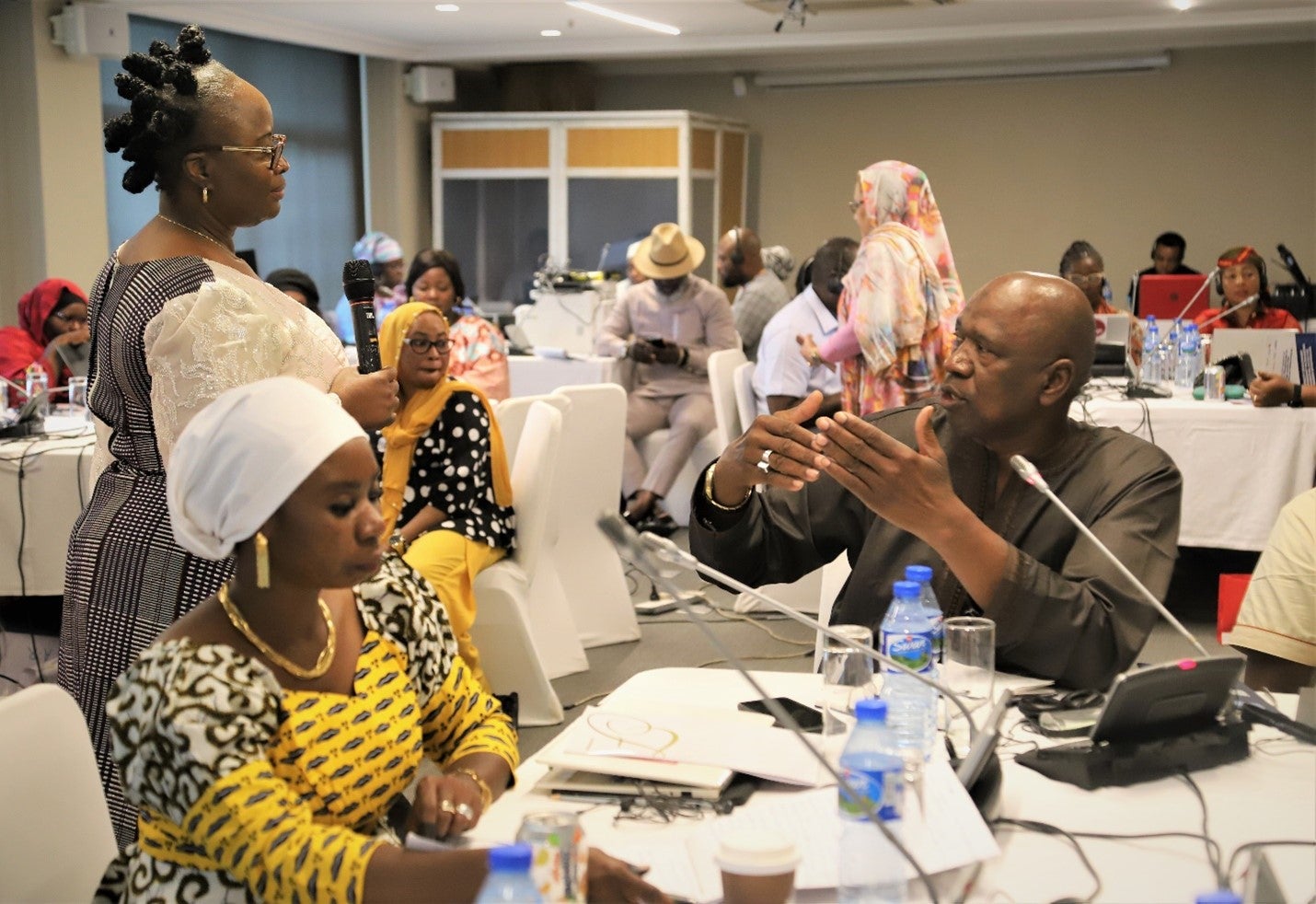Towards a gender-responsive regional development planning
Date:

In collaboration with UNDP, UN Women held a regional training workshop on integrating gender-sensitive disaster risk reduction into development planning and budgeting at the central level and in sectors, taking gender into account. The training was part of the Sahel Resilience Project, a Swedish government-funded project which aims to build disaster risk reduction and adaptation capacity for resilience in the Western Sahel and Lake Chad Basin by ensuring that women's civil society organizations, regional institutions, and governmental entities of the Sahel countries have institutionalized and domesticated development planning that considers gender-responsive disaster risk reduction, and risk-informed programming and investing for resilience building.
At the event, UN Women Representative to Nigeria and the ECOWAS, Ms Beatrice Eyong, highlighted the importance of the exercise, noting that vulnerable women often bear the brunt of increasing disaster risks. As part of the training exercise, participants from different countries also presented strategic solutions unique to their country’s needs. While assessing their presentations, UN Women’s country Rep Ms Beatrice Eyong emphasized that to successfully respond to a crisis, it important to think outside the box and recognise the different roles both men and women play. She also stated that political will is necessary for this to happen and must be created where this is not present. She noted that it is beneficial to analyze the situation in each country and find where to anchor financing.
Ms Beatrice also recommended the use of evidence-based advocacy to garner government support. According to her, to build a strong case, stakeholders must be able to demonstrate that such strategies are already in existence through policy documents, national normative framework or ratified documents.
The participants lauded the initiative, expressing their hope that the collective efforts of governments and individuals will help to reduce the likelihood of disasters in the Sahel region. They shared their thoughts on needing more research and data to inform decision-making and ensure the most effective strategies are in place. They also noted that implementation frameworks must be backed with budgetary allocations and contextualized locally for disaster risk reduction to be effectively mainstreamed. Participants from Nigeria and other West African countries attended the workshop.